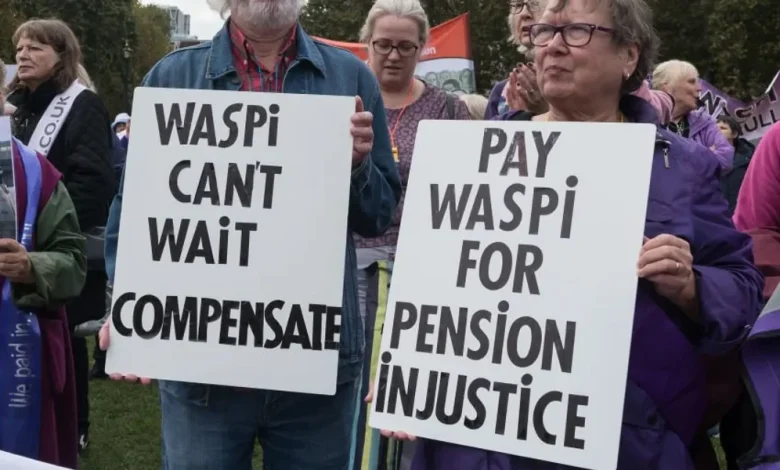Waspi takes DWP to High Court over state pension compensation refusal

Women born in the 1950s are preparing for a crucial legal battle at the High Court next month as they seek to overturn the Government’s refusal to offer financial redress for state pension age changes.
The judicial review, scheduled for December 9 and 10, will see Women Against State Pension Inequality (Waspi) challenge the Department for Work and Pensions’ (DWP) decision to deny compensation to those affected by the rise in retirement age from 60 to 66.
The campaigners argue that inadequate notification of these changes left many women unable to prepare financially for retirement.
Labour ministers announced towards the end of last year that no payouts would be made, maintaining that the majority of affected women were aware of the changes and that earlier correspondence would have made minimal difference.
This position contradicts findings from the Parliamentary and Health Service Ombudsman, setting the stage for a significant legal confrontation.
The campaign has raised more than £250,000 through public donations to fund its legal challenge.
This funding will support efforts to overturn what supporters describe as an unfair decision affecting women who experienced major disruptions to their retirement plans.
The dispute centres on claims that the DWP failed to provide adequate notice when the state pension age for women rose from 60 to 65 and then to 66.
Many affected women say they remained unaware of these changes until shortly before retirement, leaving them financially unprepared.
Waspi protestors holding placards
|
GETTY
The Parliamentary and Health Service Ombudsman found significant failings by the DWP, concluding that the department should have informed affected women much earlier.
The Ombudsman recommended compensation of between £1,000 and £2,950 for each affected woman and urged Parliament to take action.
Despite these findings of maladministration, the Government has maintained its position against providing compensation.
The Ombudsman’s report identified a 28-month delay in correspondence with 1950s-born women, describing this as an example of poor communication.
Although the DWP accepted and apologised for the delay, it disputed the Ombudsman’s conclusions about harm caused and the proposed remedies.
The Waspi campaign has fought to address historic inequality women has faced
|
Waspi
Officials have argued that most women were aware of the pension changes and that faster notification would have had limited effect.
This rejection came despite the Ombudsman’s findings that administrative failures had caused unnecessary distress and financial uncertainty.
Even if the judicial review succeeds, it would not automatically result in compensation.
A ruling in favour of Waspi would instead require the Government to reconsider its position on redress.
Waspi chair Angela Madden said: “They certainly can’t use the same reasons from before because those reasons will have been deemed unlawful.”
The DWP has declined to comment on ‘live litigatation’
| GETTY
She added: “They can’t just do it again. But they could review the report yet again and come up with something completely different.”
Her comments reflect uncertainty over what action the Government might take if the court sides with campaigners.
A DWP spokesperson said: “We do not comment on live litigation.”
They added: “We accept the Ombudsman’s finding of maladministration and have apologised for there being a 28-month delay in writing to 1950s-born women.
“However, we do not agree with the Ombudsman’s approach to injustice or remedy and that is why we have decided not to pay compensation.”
The High Court’s ruling next month could mark a defining moment in the long-running campaign for pension justice.





